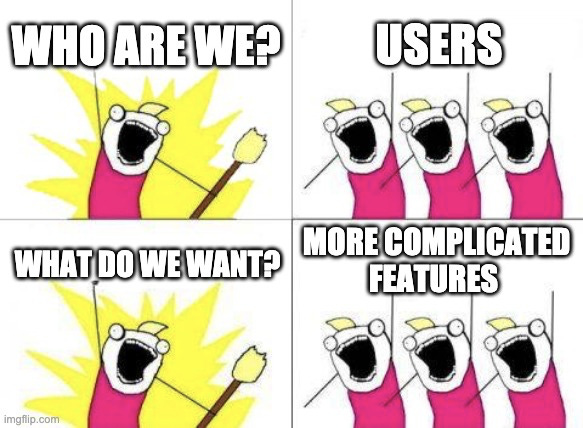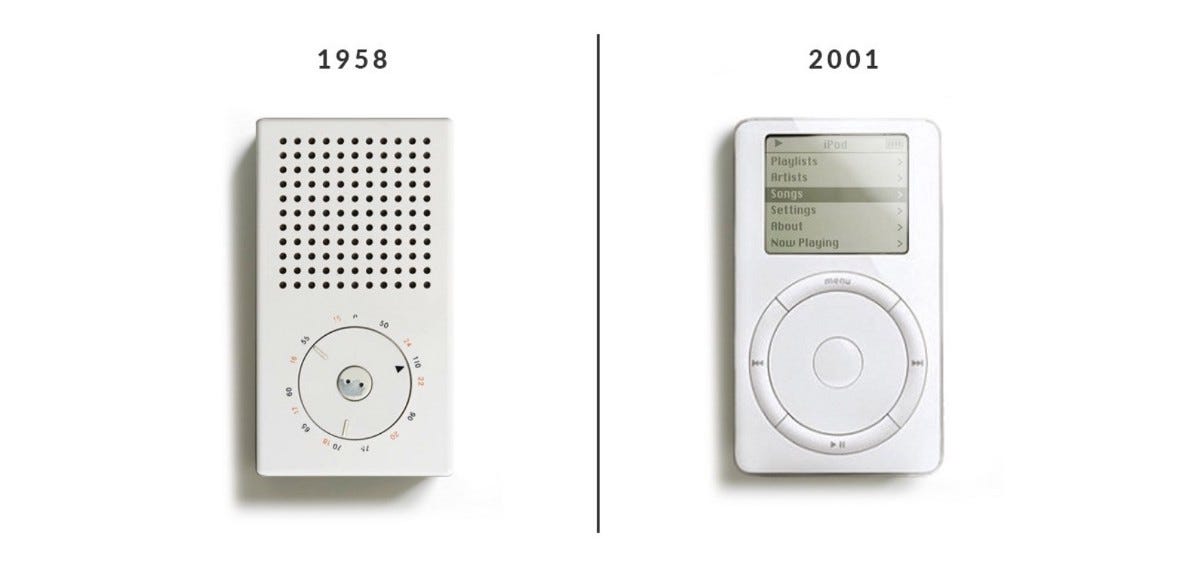Via Negativa - Less, but better
Applying Via Negativa practices across domains - Tech, Love, Health, Happiness, and Life.
“Michelangelo was asked by the pope about the secret of his genius, how he carved the statue of David, largely considered the masterpiece of all masterpieces. His answer: “It’s simple. I just remove everything that is not David.”
We live in a world where the most obvious approach to any problem is done via addition. Maybe we are conditioned in such a way from childhood. More emphasis on collecting degrees/certificates than actual learning let alone questioning do I need to do this?
Headache → Take crocin
Feeling low → Buy something
Feeling lonely → Install a dating app.
Marriage not working → Have a child.
Should anything not be working → Add something and try out so on and so forth.
Let us explore how Via negativa can be a blessing in tech, love, health, happiness, and life in general. I’m just exploring here, not trying to arrive at a particular solution as I have been reflecting on it for a while.
Tech bros obsession with complexity
I see this all the time, even the writing app I’m using right now has fallen into this trap. My product manager, clients love this too! They believe by adding more features to their product, makes their product better.
Add more colors. Oh, we need icons here. Can we use some heavy animations here? Oh, common on the first fold needs to have more of our brand values. Let’s add this, this, and this too (to appease some dumb stakeholders).
But is it true? As a designer, I talk to a lot of users. The ground reality is people don’t always want to be overwhelmed by new features. They just want to get the work done fast. Better to remove unnecessary features in the app that isn’t adding any value to the user experience. Unfortunately, Adding is favoured over subtracting in problem-solving, even when removing features is more efficient [1].
Simplicity is underrated!
“It is very difficult to argue with salaried people that the simple can be important and the important can be simple. The tragedy is that much of what you think is random is in your control and, what’s worse, the opposite.” (Excerpt from Bed of Procrustes, Nassim Taleb)”
In the late 20th century, a young German designer changed the way we perceive product design. He’s the man who invented consumer product design as we use it today. To quantify his impact, you only need to look at all millions of Apple products in your pocket. Dieter Rams were becoming increasingly interested in the world of things that surrounded him — “an impenetrable confusion of forms, colors, and noises.” He would always strive for reducing clutter, unnecessary elements from the product. One of his design principles was — “Good design is as little design as possible”.
Both Steve Jobs and Johny Ive (ex-chief designer at Apple), were inspired by Ram’s work. No wonder why Apple products have a zen-like simplicity. iPods, iPhone sales speak for themselves.
Dating in the 21st century — Welcome to Brave new world
Relationships have already been complex and adding to this we now have — dating apps. Welcome to the vicious circle where everyone belongs to everyone else [3]. I have been on/off on it as well, I don’t know if it’s funny or rather depressing to find similar faces every time I create my account. The point is these apps create a false sense of abundance. Giving you so many matches that you might have a short-lived validation, dopamine hits. But it’s virtually impossible to focus on someone when you have so many choices, it’s a well-known phenomenon called the Paradox of choices [4]. Trust and insecurity issues start to arise, emotional connections can’t be forged let alone something long-term.
Please don’t perceive it as black and white. It’s okay to use such platforms if we are clear with our intentions — Not what you are seeking but what you are not seeking. We, humans, are a little complicated that you readers won’t disagree with, it’s much harder to know what we want than what we don’t want. Again, same guiding principle, getting to selection via elimination, less but better.
The more choices we have, the more confusion it creates. If you are lucky to find a spark with someone then getting immediately off from the platform seems the only reasonable way to me. If Aldous Huxley was alive, he would be experiencing his book (brave new world [5]) here and now.
“Actual happiness always looks pretty squalid in comparison with the overcompensations for misery. And, of course, stability isn’t nearly as spectacular as instability. And being contented has none of the glamour of a good fight against misfortune, none of the picturesqueness of a struggle with temptation, or a fatal overthrow by passion or doubt. Happiness is never grand [6].”
An urban hunter-gatherer, Lindy never lies.
Quitting smoking, sugar and so-called junk food has been proved to be more beneficial than taking any supplements or so-called vitamin pills. The Pharma doesn’t want you to know that for obvious reasons! All these packaged food, juices do more harm than good. By refraining from a certain product or even complete absence of food (my mom calls it fasting) brings more good than by the addition of anything at all.
Hunter gathers understood via negativa so well, fasting was a common practice back then. No wonder, hunter-gathers looked like modern-day athletes!
I’m not a nutritionist but I use time as a natural filter and these practices hold up to the Lindy Effect.
(The Lindy Effect is the idea that the older something is, the longer it’s likely to be around in the future.If a book has been in print for forty years, I can expect it to be in print for another forty years. But, and that is the main difference, if it survives another decade, then it will be expected to be in print for another fifty years. This, simply, as a rule, tells you why things that have been around for a long time are not “aging” like persons, but “aging” in reverse. Every year that passes without extinction doubles the additional life expectancy. This is an indicator of some robustness. The robustness of an item is proportional to its life [7]. )
The sucker’s problem
Recall that the interventionist focuses on positive action—doing. I have used all my life a wonderfully simple heuristic: charlatans are recognisable in that they will give you positive advice, and only positive advice, exploiting our gullibility and sucker-proneness for recipes that hit you in a flash as just obvious, then evaporate later as you forget them. Just look at the “how to” books with, in their title, “Ten Steps for—” (fill in: enrichment, weight loss, making friends, innovation, getting elected, building muscles, finding a husband, running an orphanage, etc.) [8]
I am not trying to let down allopathy here or alleviate alternative ways, but these short-term cures have invisible long-term effects. We often miss the Second-order effects [9]. And many modernity diseases can be resolved by subtraction/elimination, which I believe should be our default approach.
Happiness is like a butterfly — My personal experience
A few years back, I was staying in the rainforest of Srilanka beside a Buddhist monastery. There was no wifi, no networks, no stimulation as we generally find in city life. Yet I never felt more peaceful and happy in life. I was a bit taken aback, at that time I was in my early 20s and had all the decent pleasures one could imagine. As I enquired further, I learned these states of bliss which were so pleasant only came out when I was completely still. As I sat down under the foot of the tree, I did nothing (no addition), just being a mere observer of whatever thoughts were coming and going. If I was able to stay still for a good amount of time, things start to fade away, 5 senses got less and less active. Less but for better.
One more interesting thing I noticed about how meditation works — If you sit down with the intention of getting something out of it, it won’t work! You’ll just end up getting more agitated, but if you have the intention to just make peace with no matter what’s happening, being kind and letting go of whatever arises, then the magic starts to unravel. In short, it was only by eliminating these sensual stimulations, freeing my brain of constant activity, I was able to experience such joyful states of mind.
Some people say to watch your breath, concentrate on something, etc, I don’t think it works this way. Breath is a subtle object, the mind only comes to watch it once grosser things like sound, taste, smell, bodily sensation fade away. It’s a natural process of letting go, the more you let go, the more bliss you experience. Eventually, the sensation of breath also disappears, but it’s a topic on its own. I just wanted to show elimination/ letting go can be so profound and lead to pure ecstatic states of happiness.
Interestingly, Buddhism focuses more on what not to do only then comes what to do. Their 5 precepts [10] are all about refraining from certain things. Again, Via negativa in action here. I was reading somewhere, an old wise monk was once asked, Are you enlightened? No sir!, replied the venerable Sri Lankan Thera, I am not enlightened. But I am highly eliminated!
Again, I’m not trying here to make a certain approach the only way to do things. I’m exploring and to be honest, I am surprised while writing to find this guiding principle getting fit in so many domains — Tech, love, happiness, health, and so on and so forth. Now, readers I humbly ask you to unbiasedly explore for yourself and let me know in the comments your thoughts :)
I have been applying via negativa in my ways too. For instance, instead of making a To-Do list, I now make a Not-To-Do list. If I’m clear on what to not to do then naturally, I’ll put my energy into what matters!? Also, To-Do lists seem so robotic to me, we usually pick the easy ones first and it eventually becomes a vicious checklist circle rather than getting things done. There are often things that I have to consciously push myself to do, I was so wrong when I thought I procrastinate so much! Instead of fighting procrastination as though it is an illness, maybe we should learn to understand its utility.
Now I have made procrastination my friend, it seems like a naturalistic filter or as Taleb says — “Few understand that procrastination is our natural defence, letting things take care of themselves and exercise their antifragility; it results from some ecological or naturalistic wisdom, and is not always bad — at an existential level, it is my body rebelling against its entrapment. It is my soul fighting the Procrustean bed of modernity.”
Questioning your ways with an open mind and using some common sense can do wonders. How does something make you feel — does it lead to more agitation or peace? Calmness or confusion? That’s how I adopt things. Trial and error is Indeed freedom. I’ll end this on one of my favorite excerpts from the Bed of Procrustes:
“It isn’t what you know that makes you knowledgeable and rigorous; it is in the type of mistakes that you don’t make.”
(Bed of Procrustes, 3rd ed.)
Thanks to Paras, Mahima, Aman, Shring, Tripty, Alekhaya, Richa, Shikhar for reading drafts of this.
References:
http://dh.canterbury.ac.nz/engl206/author/mha418?print=print-page
https://www.theguardian.com/books/2007/nov/17/classics.margaretatwood
https://www.pastemagazine.com/books/brave-new-world/the-15-best-quotes-from-brave-new-world/
https://fs.blog/2014/01/a-wonderfully-simple-heuristic-to-recgonize-charlatans/







